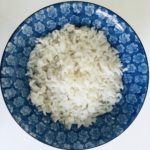allergen: substance, usually a foreign protein, causing an allergic reaction, or response of the immune system, in a person who is sensitive to that substance. Peanuts, eggs and milk are examples of allergens.
autoimmune disease: a disease that results when the immune system mistakenly attacks the body’s own tissues, believing that they are foreign. People suffering from autoimmune diseases tend to have unusual antibodies circulating in their blood that target their own body tissues. Examples of autoimmune diseases are celiac disease, diabetes, lupus, rheumatoid arthritis, and multiple sclerosis.
sensitize: to make sensitive to an allergen. When the body is first exposed to an allergen, the immune system produces antibodies against it, but there are no symptoms. The person has become sensitized. The next time the body is exposed to that same allergen, more antibodies are released, causing an allergic reaction.
villi: tiny, fingerlike projections on the surface of the small intestine that help absorb nutrients. Villi and microvilli, additional extensions lining the villi, increase the absorptive area of the intestinal wall.
xanthan gum: a powder made from a microorganism called Xanthonomonas campestris. It is used as a thickener, emulsifier and stabilizer, and as a substitute for gluten in baked goods.






what people are talking about